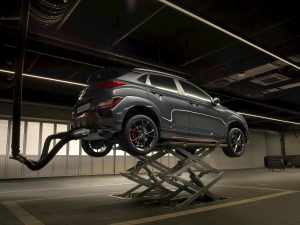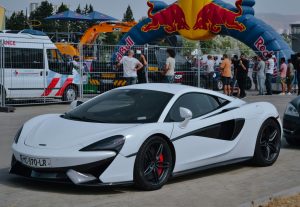The Rise of Smart Connected Vehicles
The automotive industry has been rapidly evolving over the past few years. What used to be a simple mode of transportation has now transformed into a highly advanced and interconnected system, thanks to the advent of smart connected vehicles. These vehicles are equipped with advanced technologies and connectivity features that have revolutionized the driving experience. From self-driving cars to in-vehicle Wi-Fi, smart connected vehicles are paving the way for the future of transportation. In this article, we will explore the rise of these intelligent vehicles and how they are reshaping the automotive industry. 
The Evolution of Smart Connected Vehicles
Smart connected vehicles are a product of the ever-evolving technology landscape. With the rise of the Internet of Things, connectivity has become a crucial aspect of our daily lives. The automotive industry has also embraced this concept and integrated it into their vehicles, creating a new era of smart cars. Earlier, we were limited to using our smartphones and navigation systems while driving. However, with smart connected vehicles, we can now stay connected to the internet, access real-time traffic information, and even perform remote functions such as locking and unlocking our cars. This technology has not only made our lives more convenient but has also significantly enhanced the safety and efficiency of vehicles.
Advanced Safety Features
One of the key benefits of smart connected vehicles is the incorporation of advanced safety features. These vehicles are equipped with sensors, cameras, and radars that constantly monitor the surroundings and alert the driver of any potential hazards. Some cars also come with automatic braking systems, collision avoidance systems, and lane departure warning, which use this data to prevent accidents. With the rise of self-driving cars, smart connected vehicles have taken safety to the next level by eliminating human error and providing a safer driving experience.
Enhanced Efficiency and Performance
Smart connected vehicles also come packed with features that enhance the efficiency and performance of the vehicle. Many cars use real-time traffic data to optimize their routes, saving both time and fuel. With the integration of sensors and data analytics, these vehicles can also monitor and analyze the driving patterns and adjust the performance accordingly. This technology not only makes driving more comfortable but also helps in reducing carbon footprints, making them an eco-friendly option.
The Impact on the Automotive Industry
Smart connected vehicles have had a significant impact on the automotive industry. With the rise of competition, car manufacturers are constantly introducing new features and advancements to stay ahead. The demand for these vehicles has also been steadily increasing due to the convenience and safety they offer. As a result, the industry has been witnessing a shift towards more connected and integrated vehicles, and this trend is expected to continue in the future.
A New Era of Mobility
The rise of smart connected vehicles has also paved the way for new opportunities and challenges in the broader mobility landscape. With the increased connectivity, we can now see a rise in car-sharing and ride-sharing services, providing a more cost-effective and efficient means of transportation. This trend has also led to the emergence of new business models, including subscription-based ownership and on-demand vehicle services, which have changed the way we perceive mobility.
The Road Ahead
The future of smart connected vehicles is promising. With the advancement of technology, we can expect to see more innovative features and functionalities in our vehicles. The rise of 5G connectivity is also set to revolutionize the automotive industry, allowing for faster and more reliable communication between vehicles and their surroundings. Furthermore, with increased data collection, manufacturers can analyze customer behavior and improve their products accordingly, making the driving experience even more personalized and efficient.
In Conclusion
Smart connected vehicles have disrupted the automotive industry, bringing in a new era of intelligent and interconnected vehicles. With the numerous benefits they offer, these vehicles are gaining popularity among consumers and have become a driving force for the industry’s future. As technology continues to advance, we can only expect to see more exciting advancements in the world of smart cars. The future is indeed bright for the rise of smart connected vehicles.











